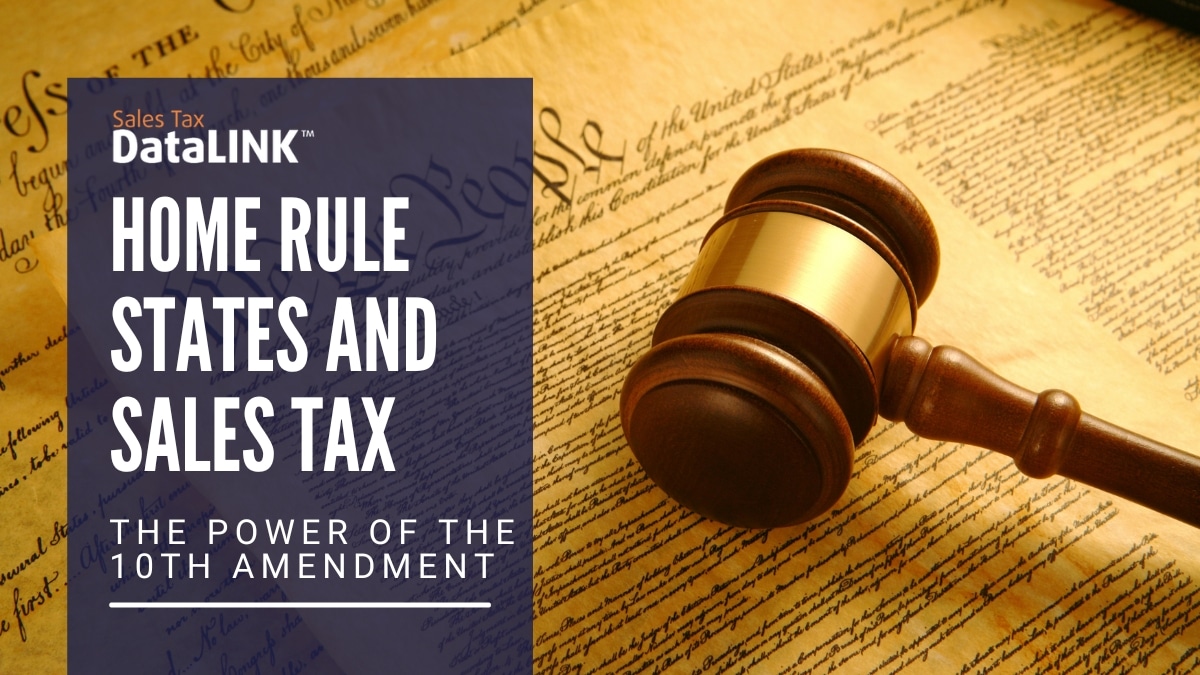Understanding Home Rules States and Local Governance
Home rule is a system that delegates certain aspects of governance from states to cities, allowing local jurisdictions to exercise their powers. The 10th Amendment of the U.S. Constitution grants states control over matters not explicitly outlined in the Constitution, thereby enabling states to establish their tax rates and regulations. However, it is important to note that home rule differs across states, contributing to varying degrees of autonomy granted to counties and cities within each jurisdiction.
Home rule for sales tax
A home rule state is a state that grants local governments the authority to regulate and tax certain matters within their jurisdiction. This means that local governments in home rule states have the power to impose their own sales tax on top of the state sales tax. Home rule states include Alabama, Alaska, Arizona, Colorado, Illinois, and Louisiana. Other states may also have local city or county taxes, and some states also have special tax districts.
In home rule states, sales tax rates can vary widely depending on the local government’s policies. Since local governments can add their own sales tax on top of the state’s sales tax rate, the total sales tax rate in a single state can range from, say, 2.9% to 11% depending on the location of the sale.
Remote sellers can’t just charge the state’s sales tax rate and figure they’ve done their bit. They must be able to calculate the sales tax rate for the specific tax jurisdiction where they’re sending their goods or services.
What’s taxable?
The sales tax in home rule states is usually levied on tangible personal property, such as clothing, furniture, and electronics. It may also apply to certain services, such as hotel stays, car rentals, and restaurant meals. However, the exact items and services that are subject to sales tax can vary by state and local government.
In addition to the varying rates, home rule states can also have different rules for exemptions and exclusions from sales tax. For example, some states exempt certain types of groceries, while others do not. Some states exempt certain types of clothing, while others only exempt clothing under a certain price threshold. States that don’t charge sales tax on food or clothing — or which charge less for these essential goods — may still allow counties and cities to charge sales tax for the same items.
Administration of sales tax
The administration of sales tax in home rule states can also be complex. In some states, local governments collect and administer their own sales tax, while in others, the state collects the tax on behalf of the local governments. This can lead to different reporting and filing requirements for businesses operating in different locations.
Furthermore, home rule states can have different sales tax sourcing rules. Sourcing refers to the rules used to determine which sales tax jurisdiction has the right to tax a particular transaction. In some states, the tax is based on the location of the seller, while in others, it is based on the location of the buyer. In still other states, it is based on the location of the delivery or the point of sale. Remote sellers generally collect taxes based on the tax rate in force at the buyer’s destination for any state where they have nexus. This includes both state and local sales taxes.
Keeping track
The complexity of sales tax in home rule states can be challenging for businesses operating in multiple jurisdictions. They may need to keep track of different tax rates, exemptions, and reporting requirements, and ensure that they are collecting and remitting the correct amount of sales tax to the appropriate jurisdiction.
For most companies, it isn’t practical to keep all of this in-house. Sales Tax DataLINK provides highly accurate sales tax rate tables for every jurisdiction, and we also provide complete sales tax compliance services, from nexus review and registration to filing. Call 479-715-4275 for a demo with your data.




